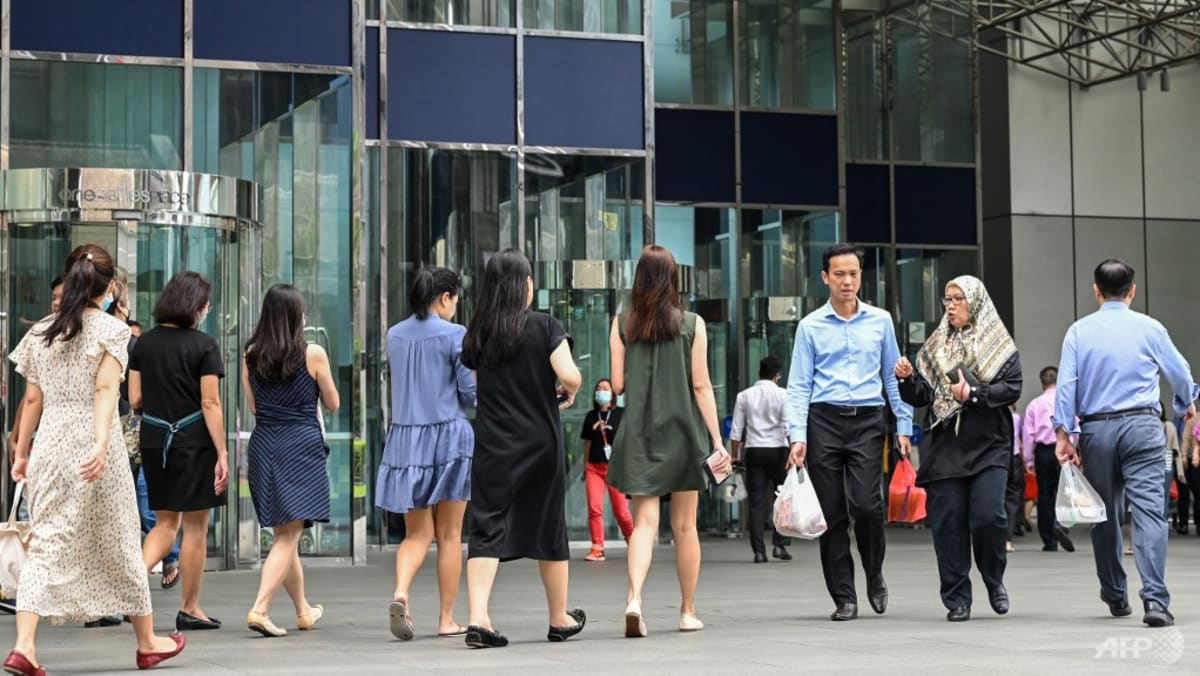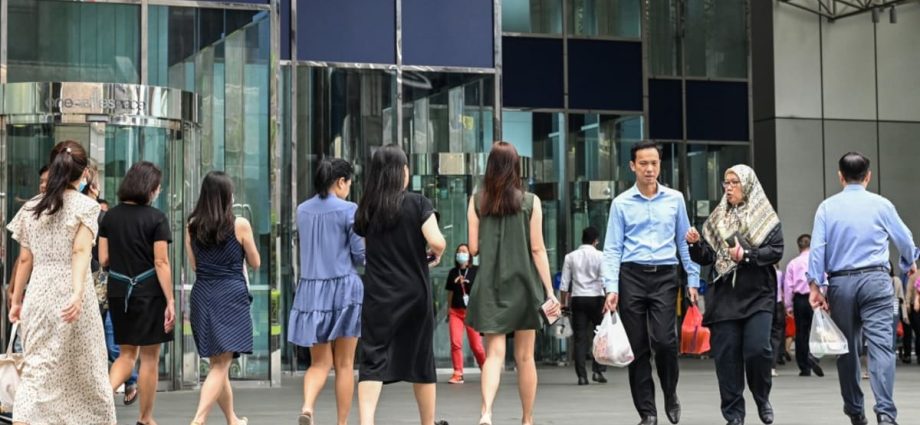
CASH, CDC VOUCHERS
Providing further details about the support measures, the Finance Ministry said about 2.5 million adult Singaporeans will receive an additional one-off sum of up to S$200 in cash in December, along with the existing component from the Assurance Package that was previously announced.
This is targeted at providing more support to lower- and middle-income adult Singaporeans, said the ministry.
For example, those with an assessable income of S$34,000 or below will receive up to S$200, on top of the existing S$600 that they will also get in December.
The cost-of-living special payment will be given to eligible Singaporeans who are 21 and above this year, have annual assessable income below S$100,000 and do not own more than one property.
Every Singaporean household will also get S$200 more in CDC vouchers next year. This brings the total amount of vouchers to S$500, on top of what was announced at Budget 2023.
The additional vouchers will be split equally – S$100 can be spent at participating heartland merchants and hawkers, while the other S$100 can be spent at participating supermarkets such as NTUC FairPrice, Giant and Sheng Siong.
The CDC vouchers can be claimed from Jan 3, 2024 onwards at go.gov.sg/cdcv, and will expire in end-2024.
S&CC REBATES, U-SAVE REBATES
As for rebates, 950,000 Singaporean households living in Housing and Development Board (HDB) flats will get an additional one-off 0.5-month of service and conservancy charges (S&CC) rebate.
This will be disbursed in January 2024 along with the regular S&CC debates.
MOF said that this will, on average, “fully offset” the S&CC increase in the first year of increases for one- to four-room HDB flats as well as about 85 per cent for larger HDB flats.
It was announced in June that residents in all 15 town councils run by the People’s Action Party (PAP) would have to pay more in S&CC. The first increase took effect in July while the second increase will kick in on July 1, 2024.
The 15 PAP-run town councils are: Ang Mo Kio, Bishan-Toa Payoh, Chua Chu Kang, East Coast, Holland-Bukit Panjang, Jalan Besar, Jurong-Clementi, Marine Parade, Marsiling-Yew Tee, Nee Soon, Pasir Ris-Punggol, Sembawang, Tampines, Tanjong Pagar and West Coast.
Furthermore, 950,000 Singaporean HDB households will receive an additional S$20 per quarter of U-save rebates from January 2024 to December 2025, or a total of S$80 per year for two years.
This is aimed at cushioning the impact of the increases in carbon tax and water prices in 2024 and 2025. These rebates will be disbursed together with the regular U-Save rebates.
MOF said that that additional rebates will, on average, fully offset the increase in utility bills for one- to two-room HDB flats; about 80 per cent of the increase in utility bills for three- to four-room HDB flats; and about 65 per cent of the increase in utility bills for larger flats.
PUBLIC TRANSPORT-RELATED MEASURES
Resident households with a monthly household income per person of not more than S$1,600 will receive public transport vouchers worth S$50 each.
These vouchers will be disbursed from end-December and can be used to top up fare cards or buy monthly travel or concession passes.
Last week, the Public Transport Council announced that the latest bus and train fare increases will more than double from last year’s hike, which means adult commuters will pay 10 to 11 cents more per journey. This will take effect from December.
The trend of sharper increases could potentially continue with the Public Transport Council again deferring a bulk of the fare adjustment quantum to future fare review exercises.
On Thursday, MOF said the government would provide additional subsidies of about S$300 million in 2024 to cover the deferred fare adjustment quantum of 15.6 per cent that will be carried over to future fare review exercises.
“This additional subsidy helps to moderate the fare increase and pay for higher costs of providing public transport services due to the continued increase in energy prices in 2022, core inflation, and strong wage growth,” MOF added.

